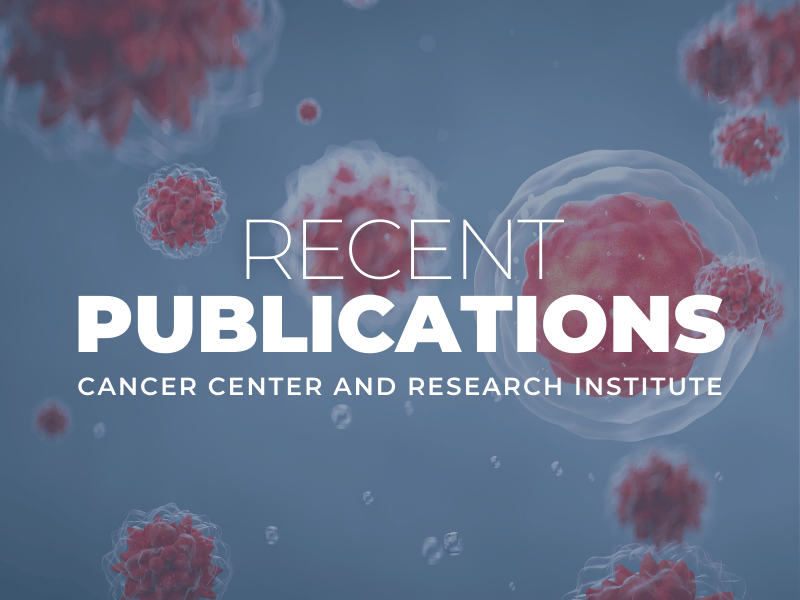Recent publications

New study offers hope for better treatment of pancreatic cancer
Dr. Jawed A. Siddiqui, assistant professor in the Department of Cell and Molecular Biology and member of the Cancer Center and Research Institute, published a review article in Cancer Letter journal titled “Ribosome biogenesis, altered metabolism and ribotoxic stress response in pancreatic ductal adenocarcinoma tumor microenvironment.” Siddiqui discussed how key signaling pathways control ribosome production, which is vital for cells to function properly in pancreatic cancer cells.

Cancer cells with mutations develop different ways to survive in the tough conditions of the tumor microenvironment. In the tumor's surrounding environment, cancer-associated fibroblasts help tumors grow and affect how cells behave. They can also trigger different ways for cells to die, such as programmed cell death, iron-dependent cell death, autophagy and inflammatory cell death. However, some cancer cells evade these death signals, becoming more aggressive and resistant to treatment.
To survive tough conditions, pancreatic ductal adenocarcinoma cells turn on different stress responses, like the integrated stress response, hypoxia-induced stress response, endoplasmic reticulum stress response, ribotoxic stress response and autophagy. These responses also activate CAFs, which make the tissue stiffer, reduce blood flow and limit oxygen and nutrients to the tumor. The lack of oxygen damages cells and changes how the tumor grows, making it harder to treat.
"Targeting ribosome production opens new avenues for understanding cancer cell behavior and metabolism, specifically within the tumor microenvironment," said Siddiqui.
Citation:
Chaudhary, S., Siddiqui, J. A., Pothuraju, R., & Bhatia, R. (2025). Ribosome biogenesis, altered metabolism, and ribotoxic stress response in pancreatic ductal adenocarcinoma tumor microenvironment. Cancer Letters, 612, 1-10. https://doi.org/10.1016/j.canlet.2025.217484


